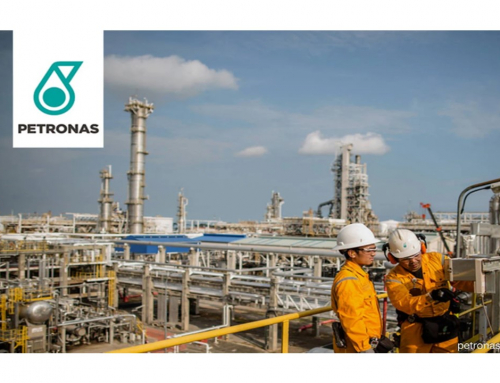
5G will be the backbone of tomorrow’s smart cities. Source: Shutterstock
BUSINESSES could expect higher data rates, lower costs, and higher system capacity from 5G technology. At least, that’s the promise.
The implementation of such technology will unlock machine-to-machine communications, allowing true mobility for both businesses and consumers.
Malaysia will begin 5G tests starting April 2019 according to Minister of Communications and Multimedia Gobind Singh Deo.
While 5G may be just faster connectivity for consumers, it will enable businesses to integrate greater virtual reality and AI into everyday solutions.
The fifth generation mobile network claims to be 100 times faster than 4G technology. If that is true, much larger amounts of data can be shared in much less time.
The business potential of 5G technology is expansive. Its ability to support more devices and at more rampant use will be the backbone of tomorrow’s smart cities.
Malaysia’s Deo emphasized that the government recognizes the mobile technology as a global trend and aims to provide accessibility to a secure 5G infrastructure.
Cyberjaya and Putrajaya will be Malaysia’s first cities to be presented with 5G technology.
Telecommunications industry players will be conducting tests at these two locations alongside regulatory body Malaysian Communications and Multimedia Commission (MCMC).
The tests are expected to measure the trajectory of 5G technology in Malaysia. Although there’s no fixed duration for the tests, Deo is hopeful that a better understanding can be achieved within the next 6 months.
The findings from the tests to be conducted will examine the nation’s readiness in commercial 5G use.
When asked about 5G security concerns at the Cyberjaya Infra Conference and Exhibition 2019, Deo reassured everyone of state’s efforts.
“Security concerns are at the topmost of our consideration and this is the reason why MCMC is in the process of doing the study on 5G infrastructure,“ he said.
MCMC is currently collaborating with the National Cyber Security Agency (NACSA) to assess other countries’ networks. The study is to ensure that Malaysia’s 5G infrastructure is absolutely secure for implementation.
Malaysia is only launching tests for commercial 5G a decade after its introduction in 2009. This is because of how complex security could become upon its implementation.
The lack of awareness amongst businesses concerning 5G technology could potentially set smart cities back too. So, it is important for businesses to learn about the use and potential of 5G as well as precautionary measures.
At the end of the day, 5G is just a tool that has the capacity to connect wirelessly. What businesses do with the technology and how they use it to advance digital penetration will determine what 5G becomes.
Source: https://techwireasia.com/2019/03/5g-tests-to-unlock-smart-city-potential-in-malaysia/






